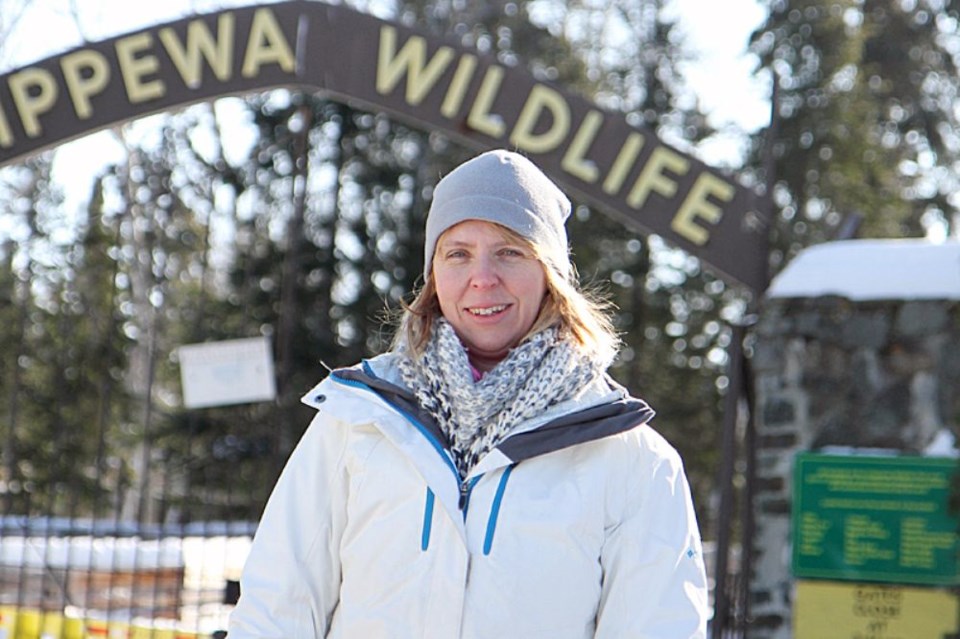In order to help convince Thunder Bay City Council to maintain the Chippewa Park Wildlife Exhibit, The Friends of Chippewa Park have launched an online petition through their web site and Facebook page and are encouraging supporters of retaining the Exhibit and expanding it into a full-fledged Wildlife Rescue and Conservation Centre.
The petition will also be available at the Wildlife Exhibit on February 20 and 21 when the Exhibit is open to the public during the Family Day Weekend.
The petition can be found at www.chippewapark.ca
The Friends of Chippewa Park will be presenting their views to Thunder Bay City Council on Tuesday, January 31 as part of the City’s pre-budget consultation starting at 6:30 PM. The petition will be presented to Council prior to its final vote on the budget scheduled for February 21.
Petition
Whereas the proposed City of Thunder Bay 2017 Budget calls for the closure of the Chippewa Park Wildlife Exhibit on May 1, 2017 and all of the animals and birds relocated to zoos across the country, and
Whereas animals have been an integral part of Chippewa Park since 1924 and have been enjoyed by tens of thousands of children and adults alike, and
Whereas City Council has already decided that the future of the Wildlife Exhibit should be part of the yet to be completed Visioning Exercise for Chippewa Park and no decision should be made until that process has been completed and reported to Council, and
Whereas converting the Wildlife Exhibit to a Wildlife Rescue and Conservation Centre as proposed by The Friends of Chippewa Park and expanding it to provide larger enclosures for all animals and fowl is an option that should be considered, and
Whereas a Wildlife Rescue and Conservation Centre is a place where animals can come to live and be protected for the rest of their lives. It’s a safe haven, where they receive the very best care possible. They are given every opportunity to behave naturally in a wonderfully loving environment, and
Whereas part of a Rescue and Conservation Centre is to rescue and rehabilitate animals that have been orphaned, shot, hit by vehicles, trapped, starved, suffering from mange, abused, injured by predator attack, injured as a result of human attack and/or neglected or abandoned. The Centre would provide a safe haven for unwanted, abused and injured wildlife, and
Whereas the Centre could also provide education to the community about co-existing with wildlife and humane solutions for wildlife-related issues. The Centre could provide quality educational experiences for people of all ages in our community with regard to living peacefully with wildlife, and
Whereas the Chippewa Park Wildlife Exhibit has the space and habitat to care for large animals such as, deer, bear, foxes, lynx and wolves and others as well as aquatic animals such as beavers and otters and the countless numbers of raccoons, squirrels and other small mammals and birds, and
Whereas most people in Ontario live in close proximity to wildlife. In rural areas, it is common to see deer and moose tracks, as well as small mammals, squirrels, chipmunks and even raccoons. Imagine the life-threatening impact on these creatures when they are injured or orphaned or when their ability to live in the wild is somehow weakened or compromised, and
Whereas through its progression of recovery and later life, the animal is treated according to its species requirements. Specific formulae, food, vaccinations, and size-appropriate enclosures are requirements for successful rehabilitation.
Therefore, the undersigned call on the Thunder Bay City Council to:
- Reinstate the funding in the 2017 Operating Budget in order that the Wildlife Exhibit continue to operate, and
- Request that the consulting team of FOTENN Planning + Design and the Boreal Centre preparing the Vision for Chippewa Park examine the option and benefits of creating a Wildlife Rescue and Conservation Centre, and
- Work with The Friends of Chippewa Park in the interim to develop a comprehensive education and marketing program for the Wildlife Exhibit
